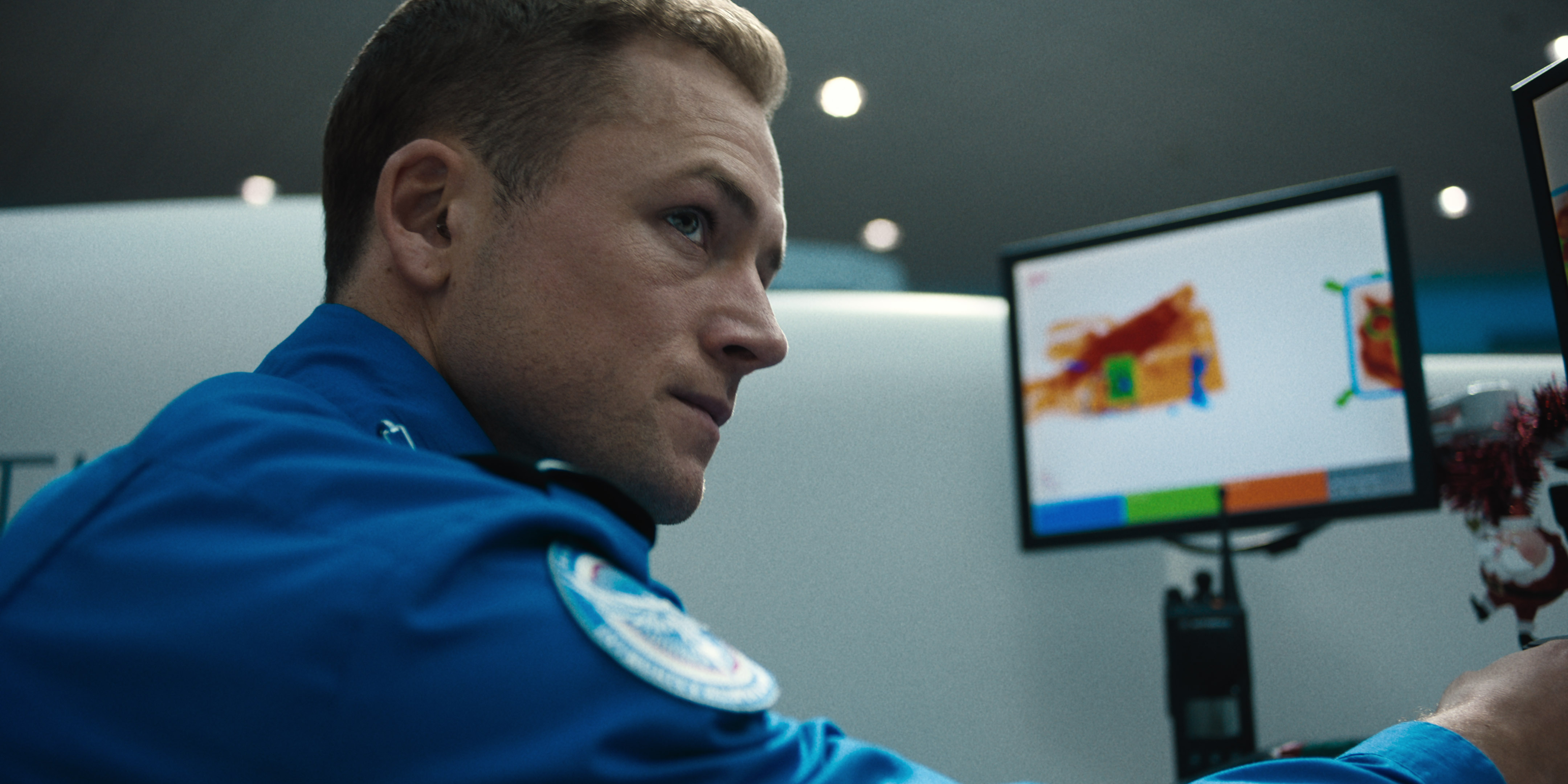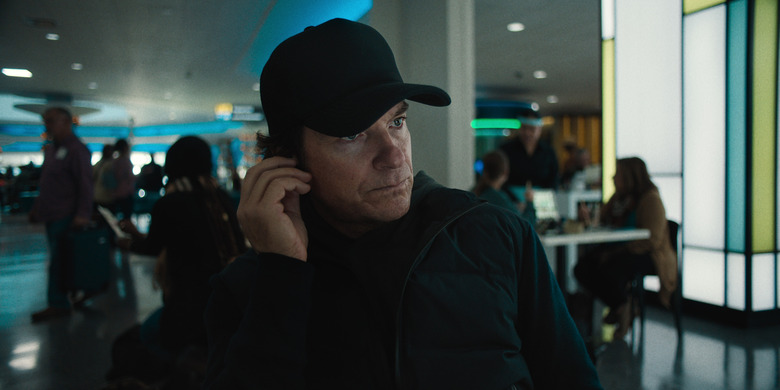Netflix's Dumb New Christmas Action Movie Is More Try-Hard Than Die Hard
Netflix's star-studded new Christmas action movie Carry-On, its biggest movie in the US this week, has plenty of fans — like legendary video game designer Hideo Kojima, who tweeted that it was "great fun. While it lacks some realism, it's a 'Christmas movie' with a 90s action-thriller vibe that the whole family can enjoy." And he's right, I suppose. If, that is, you overlook the fact that the plot strains credulity, the married main characters have fewer sparks between them than wet kindling, and you ignore the reality that this movie is basically the brain-dead love child of Die Hard and 2002's Phone Booth.
Other than all that, two thumbs up!
In all seriousness, Carry-On has its moments. I watched it over the weekend, excited mostly by the prospect of Jason Bateman playing a villain. And he certainly gets the vibe right, even though he talks way more than you'd expect from a genuinely scary bad guy. There's also a tense fight scene in a car on the highway that I thought was pretty exciting and well-executed.

The premise of the story is pretty simple: Bateman is a menacing, mysterious antagonist who strong-arms a dopey TSA agent (Taron Egerton) into letting a package loaded with the nerve agent Novichok get cleared and loaded onto a plane. For the first 30 minutes or so, though, not much of anything happens beyond Egerton and his on-screen wife Sofia Carson over-acting every chance they get.
Once Bateman's scary suitcase of Novichok is finally rolling through the TSA scanner, however, Carry-On really starts to fall apart. It felt like every five minutes I was rolling my eyes at the implausibility of one plot development after another, one of the most ludicrous being the Los Angeles cop who — on the basis of a scratchy recording reconstructed from a device that had been burned to a crisp — not only manages to put the villains' entire plan together, but she races to LAX and everyone just sort of falls in line with whatever this random cop orders them to do.
Meanwhile, don't get me started on all the heroics that Egerton's TSA agent is able to pull off just in the nick of time, like remembering how to defuse a complex nerve agent bomb after Bateman's character verbally walked him through it one time. Or, towards the end of Carry-On, when Egerton needs to sneak onto a plane and rides a baggage van out onto the tarmac and basically unscrews one thing at the bottom of the plane before hopping inside at the last possible second. Carry-On? More like, stop putting me on.
